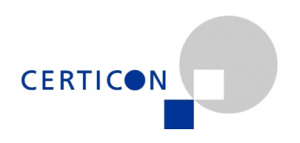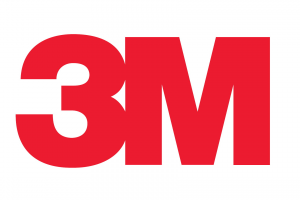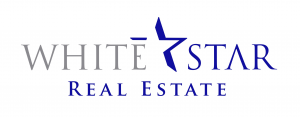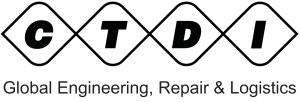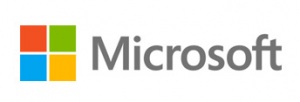7 Ways Employer Branding is Changing Czech Companies
28.04.2017Company: Media Education CEE, s.r.o.
This spring it seems to be on everyone’s lips: employer branding. No one saw it, no one knows what it eats and where it sleeps, this magical unicorn. But it’s here, so let’s talk about it.
As a communications professional, I am most grateful for this trend. Finally, something – in this case the chronical lack of people – caught the attention of Czech companies that they really need to do something about their strategic communications. In general, I dare saying that Czech companies are not always defined by a strong will to be the first, to explore, to innovate and do things differently. Many times when I was suggesting clients new ways of going about communications I heard the question: So, who does it already? Nobody? Well, then let’s leave somebody else do it first, so we can learn from their mistakes.
A chronical fear of error and failure holds Czech companies in the grip of a dangerous follower mentality. How do they get away with it, you may ask. Well, it’s quite easy. When you are in the center of Europe and business has been pouring in for decades thanks to your exquisite geography and tremendous industrial tradition, there might not be an apparent urgency to innovate or strive to be the best, let alone in communications. So, attracting new business isn't the motivator for Czech companies to innovate their communication strategies.
On the other hand, the Czech Republic has the lowest unemployment in Europe. In certain regions it’s literally impossible to find technical specialists – particularly if you’ve got one of the major car makers as your neighbor. With new projects knocking constantly at your door, sometimes you just wish you knew how to clone people: there is no way on Earth that the current Czech labor market can feed the hunger of a booming economy while retaining competitive salary levels. So what’s the solution then? You guessed: employer branding.
Confronted with the new labor market reality, many Czech companies started to turn their attention inside and ask questions such as: What exactly are we offering our people beyond the payroll? Why would someone who’s got the bottom of the pyramid of needs (money, status, recognition) covered still want to work for us long term? What is our reputation as an employer? What values is our brand projecting to candidates – and do these values work as magnets for the right talent?
Numerous public discussions took place on the topic this spring, the latest held today at the American Chamber of Commerce in Prague. Sitting in the audience and listening to the guest speakers, I couldn’t stop the feeling that something much bigger than employer branding was actually brewing under the table. There is a structural transformation going on in Czech companies and employer branding is only its latest symptom. Here is how I believe this change is going to unfold.
1. Marketing / PR departments are expanding their scope of activities, move in the direction of integrated communications. For the first time companies become painfully aware of the strategic role of their communications departments, which own the process of branding for external communications. Departments currently split into marketing, PR, advertising, internal communications come slowly together to form one, meaningful, strategic department: integrated communications.
2. HR are forced to put payroll management aside for a while, open up and learn new skills. HR departments have been so engulfed with operational and recruitment agendas that they risked losing touch with the bigger reality of the company. This is something they can't afford anymore. HR specialists need to learn new skills, including social media management, and also to own the process of conveying the company values throughout the whole recruitment and onboarding process. They also need to spend more time measuring the results of communications campaigns on candidate pipeline and adjusting the outcome for future communication initiatives.
3. Position vs. role. One of the key questions in companies today is: do we actually need an employer brand manager? Some companies believe they do, some don’t. What’s best? We don’t know yet. One thing is sure: someone needs to own the process of building and communicating the company brand with job candidates clearly, concisely and consistently. This someone needs to become the bridge between the PR and HR departments and the true driver behind the employer branding agenda.
4. Value redefinition - back to the basics. A brand is only as valuable as it is credible and trustworthy. A brand becomes trustworthy when it states its values clearly and transparently, then it acts upon them over and over again. No steps aside, no fluff – just a consistent, stubborn attachment to living the only thing that remains stable during change – values. For those companies for whom values were just a piece of paper on the wall the new employer branding trend might prove a painful exercise, unless they learn to walk their talk. Otherwise candidates attracted by the company values in the first place will leave during their trial period, sedning fluctuation and recruitment costs through the roof.
5. Higher CEO engagement. There are enlightened CEOs and there are CEOs. Companies having CEOs who naturally perceive and support the importance of strategic communications can pat themselves on the shoulder: they have a competitive advantage and they might not even know about it. CEOs who delegate communications and refuse to be at the frontline of the brand building battlefield might become sooner or later liabilities for their companies. Why? Because people look up to company leaders. They want to see in their heads, they want to hear them, they want to trust that the Boss is in charge and knows what he's doing. Mainly, they want to see that the Boss really means it with communications – otherwise why should regular employees bother to do anything about the company communications if the Boss is the first not to care? True leaders understand the needs of their companies and take action. They are not afraid to go in front of a camera and talk about how they live the company values. They set a vision, then free and cultivate resources to get the vision accomplished. Budgets included.
6. Higher focus on personal branding and storytelling across the company. Our brains are set to be fascinated by stories. We believe in stories, we love reading about our fellow or future colleagues. I expect that more and more Czech companies will finally take the path of strategic storytelling throught text, visuals and video, to get their story out there to potential candidates. This means that more and more people in companies, from boards to blue-collar workers, will need to learn how to tell their story. In the process they will learn that personal branding matters - for their company and for themselves.
7. More focus on measurement. You either have a full candidate pipeline or you don’t. The charm of the employer branding process is that the market feedback is quite fast. So you need to constantly measure, in order to understand what works and what doesn’t. That’s why HR and PR must work hand in hand when setting up relevant measurement metrics for employer brand impact, then also work together all along the process of turning the concept of employer branding from the current mystic unicorn into something real, palpable, useful and beneficial for all stakeholders.
All in all, employer branding is a process leading to more collaboration. Collaboration across departments is a value in itself. In the current Czech business environment, the low unemployment rate forcing companies to do more to promote authentic brands might be the blessing in disguise we've all been waiting for.
Tags: Human Resources |


